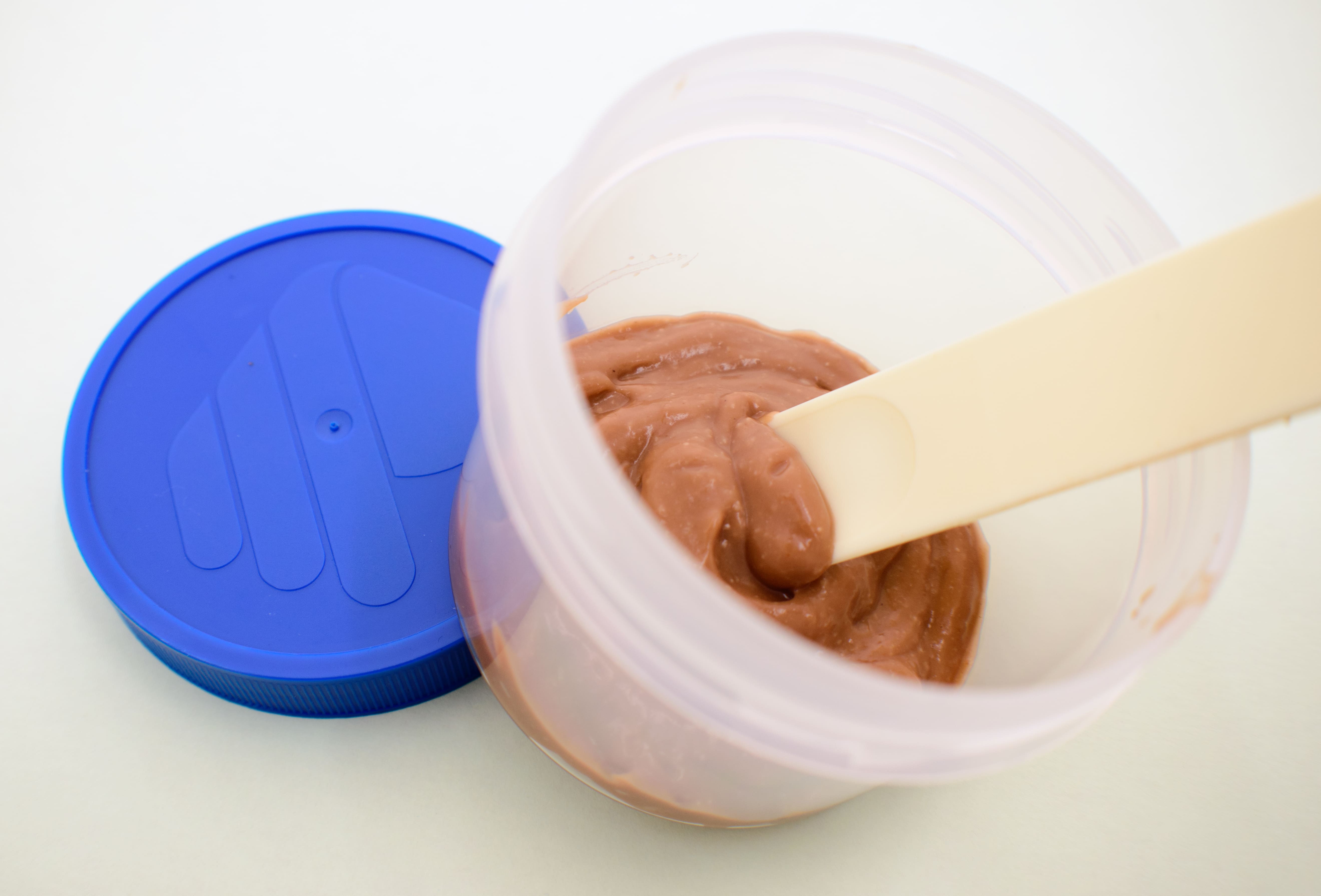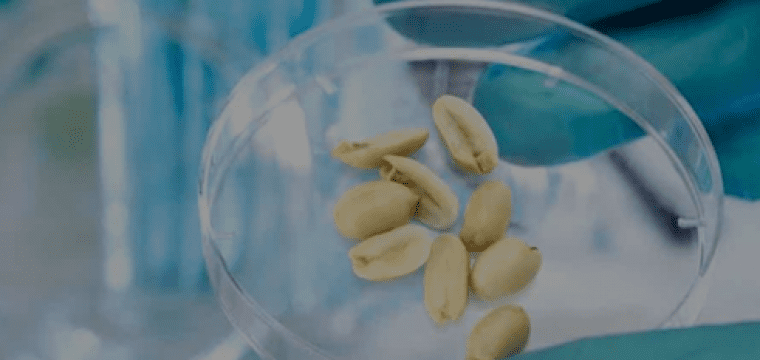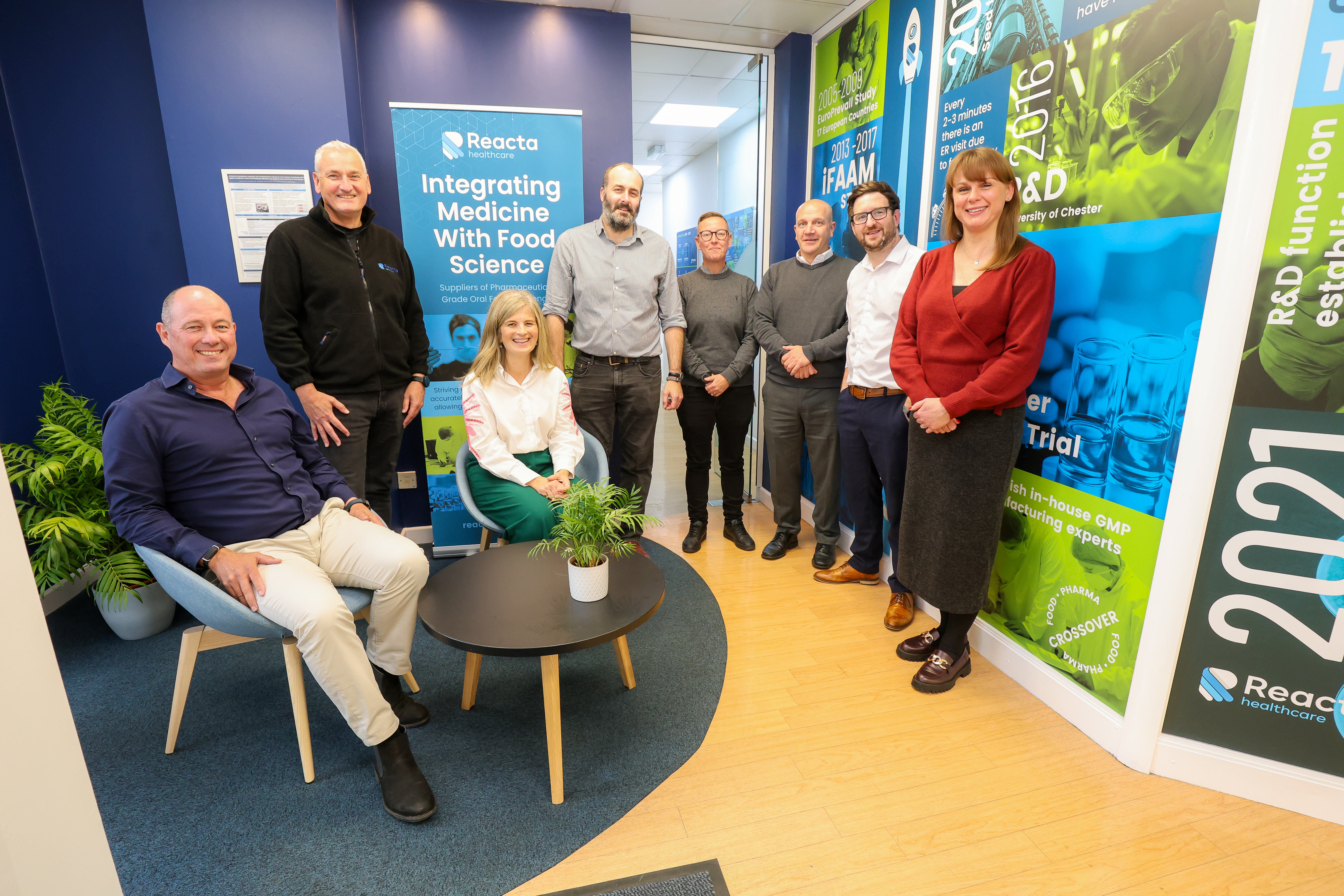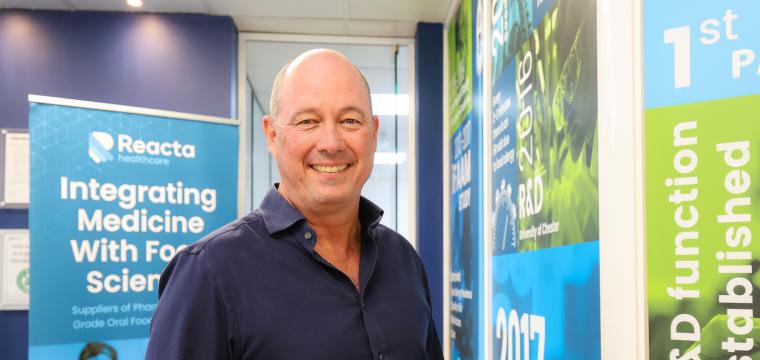The Development Bank of Wales understood our vision early on. Their support gave us the confidence and capital to scale manufacturing, expand our product range, and accelerate our global reach.
Paul Abrahams, Chief Executive, Reacta Healthcare
The business
- Location: Deeside, North Wales
- Sector: Life Sciences
- Investment: £2.8 million equity
- Jobs created: 80+
Reacta Healthcare is a pioneering life sciences company based in Deeside, North Wales.
It develops and manufactures pharmaceutical-grade Oral Food Challenge (OFC) products—the gold standard for diagnosing food allergies. These products are produced under Good Manufacturing Practice (GMP) conditions and are used globally in clinical trials to support the development of new allergy treatments.
Founded on technology developed at the University of Manchester, Reacta relocated to North Wales in 2018 and has since grown into a globally recognised supplier of GMP-standard OFCs.

The challenge
Food allergies affect over 250 million people worldwide, yet diagnostic methods are often inconsistent, time-consuming, and unreliable. Reacta Healthcare set out to transform this landscape by offering standardised, pharmaceutical-grade OFC products that improve safety, accuracy, and efficiency in allergy diagnosis.
To scale its operations and transition from food-grade to pharmaceutical-grade manufacturing, Reacta needed significant investment and strategic support.

The solution
The Development Bank of Wales first backed Reacta Healthcare in 2019 and has since invested £2.8 million in equity funding. This support enabled Reacta to:
Paul Abrahams, Chief Executive of Reacta Healthcare, said: “The Development Bank of Wales understood our vision early on. Their support gave us the confidence and capital to scale manufacturing, expand our product range, and accelerate our global reach.”
The impact

Since moving to Deeside, Reacta Healthcare has doubled its workforce—from 40 employees in 2021 to 80 by the end of 2025. The company now supplies OFC products to over 300 clinical trial sites across North America, Europe, Australia, and soon the Middle East, South Africa, South America, and Asia.
Reacta’s products have supported numerous global clinical trials, including a Phase 3 peanut patch therapy expected to seek FDA approval in 2026.
Belinda Mortell, Head of Commercial, added: “With new therapies coming to market, life will be completely different and so much better for people living with food allergies. We’ve been proud to play a significant part in that progress.”
Looking Ahead
Reacta launched two new products in 2025, with shipments beginning in 2026. The company is expanding its R&D capacity and exploring new allergy diagnostics and support products to meet growing global demand.
With a strong commitment to ESG and community impact, Reacta runs employee-led charitable initiatives and prioritises wellbeing, opportunity, and diversity across its team.
Duncan Gray, Technology Venture Investments Director at the Development Bank of Wales, said: “Reacta is a great example of how patient capital and partnership can unlock world-class innovation from Wales. Their success demonstrates how Welsh life sciences companies can compete—and lead—on the global stage.”





